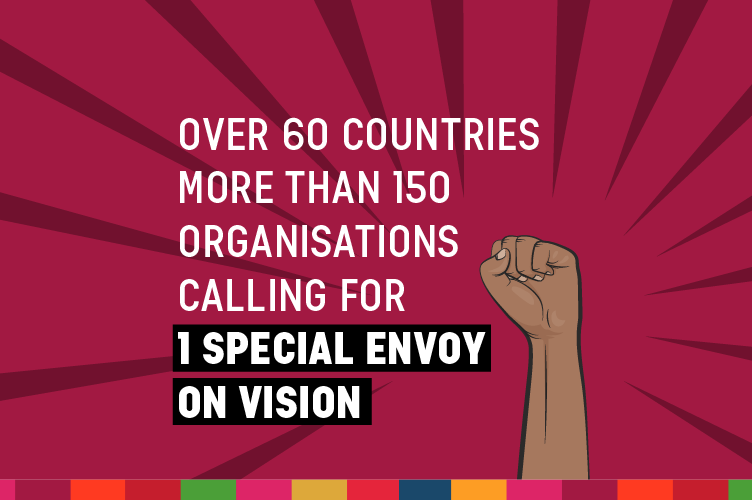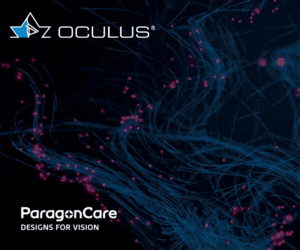RANZCO NZ 2024 – meet the speakers
May’s RANZCO NZ Branch 2024 Annual Scientific Meeting, themed 'Challenges, controversies and change', promises an exciting educational programme focusing on cataract, glaucoma, oculoplastics and aesthetics, ergonomics, wellness and burnout. The international keynotes joining the meeting in person are Professor Uday Devgan (US), Dr Audrey Looi (Singapore), Associate Professor Simon Skalicky and Liz Okely (both Australia). Here, three of them share a little more about themselves and their forthcoming trip to New Zealand.
Associate Professor Simon Skalicky
Associate Professor Simon Skalicky teaches at the University of Melbourne, is a principal research fellow at the Centre for Eye Research Australia and a consultant at the Royal Victorian Eye and Ear Hospital. Although his grandfather was also an ophthalmologist, A/Prof Skalicky says he initially found it hard to know what to do in medical school. “But towards the end I was inspired by some amazing ophthalmologists I met. I liked their broad interests outside of work and clear love for their jobs.”

A/Prof Simon Skalicky
A/Prof Skalicky’s previous talks have emphasised the importance of empathy and explaining the potential impacts of diagnoses to patients. It’s amazing what is and isn’t taught to medical students and junior doctors, he says “Take visual fields, for example. As a junior doctor and ophthalmology trainee I learnt all about perimetry – why, how, the visual physiology, the different protocols, how to interpret… However, there was one simple fact I only discovered when I was a consultant – patients do not like doing the test on the machines.” So trainees need to know that the eyecare professional’s journey isn’t just about the biology, physiology and clinical aspects, he says. “Be inspired – there is room for creativity. And personal development is as important as professional development.”
As the founder and CEO of Eyeonic, an AI-based home visual field-testing platform, A/Prof Skalicky says putting glaucoma screening into patients’ hands has been an exhilarating journey. “What began as coding the key algorithm on my computer and a series of clinical studies has emerged as a leading global perimetry solution, breaking down traditional barriers to glaucoma diagnosis.” His technology is currently being evaluated in Ethiopia, Uganda and Vietnam as a glaucoma screening tool.
There is so much scope for improving collaboration between multiple models of care, says A/Prof Skalicky, such as optometry practices, ophthalmology clinics and public hospitals. “Often we are limited by our patient management systems. Building smart digital systems that allow secure integration of medical records across different clinics and intuitive patient pathways will enhance clinical efficiency, reduce costs and improve the patient experience.”
A/Prof Skalicky’s keynote is entitled ‘Online perimetry: innovation and opportunity’, which he says will discuss technology developments and their potential implication for sustainable glaucoma monitoring in the future.
Dr Audrey Looi
Dr Audrey Looi is an oculoplastic surgeon, former clinical director of the Singapore National Eye Centre and a cataract specialist at Ava Eye Clinic, Singapore. However, eyecare wasn’t on her agenda until well into her medical degree, she says.

Dr Audrey Looi
Since medical school in Singapore is largely an undergraduate programme, as an 18-year-old she was more focused on passing the rigorous examinations than deciding on a future specialty, she says. “But I do recall watching live cataract surgery at the Singapore National Eye Centre and being quite impressed by that. That was truly the first spark.”
That spark inspired her to read more about the spectrum of eye conditions. “To this day, I think it is so important to train in an area that draws one in naturally. And I was pretty lucky to find yet another affinity – to oculoplastic surgery.”
With almost 30 years of ophthalmology surgery experience, Dr Looi says getting to a highly skilled level requires deep and wide reading and getting yourself to as many surgeries as possible. “Never shy away from the tough cases; they teach you so much. Only then do you become a blessing to your patients.”
Dr Looi’s eyecare journey became very personal when her eight-year-old son was diagnosed with Stargardt disease. Disappointed at the lack of support services for children with low vision in Singapore, she and her husband set up iC2 PrepHouse, a charity to support visually impaired and blind people. “We provide crucial services such as early intervention for infants, Braille and assistive technology. New to iC2 is our current focus on cerebral visual impairment. This area is not too well understood yet, so we are looking forward to a course led by Professor John Ravenscroft from Edinburgh later this year,” she says.
Away from work, Dr Looi says her weekends are extremely precious. “I make sure the work is done and then I just drop it totally and go find family or friends to hang out with.” Now that her kids have flown the coop, she says she also likes to head to the gym for weight-training or a spin class. “It surprises me how quickly the time passes when I do this, but I really enjoy how my body sings afterwards. And how lovely to follow up with a terrific meal with friends!”
Dr Looi’s keynote is entitled ‘Towards perfection in ptosis surgery’. “It sounds rather arrogant,” she says. “But it was chosen intentionally as we are all driven to deliver perfect results for our patients.”
Liz Okely
Liz Okely, a nurse management consultant in the ophthalmology department of Alice Springs Hospital, took a roundabout route to healthcare. “I was originally involved in theatre production and stage design, but after a couple of years I dropped out and decided I had to get a ‘real’ job that actually paid the bills.”
The notion of nursing, however, didn’t present itself until she turned 30 while living on a Thai island and working as a scuba diving instructor. “All the tourists hired motorbikes but didn’t wear helmets and, of course, they were inebriated most of the time. So when I wasn’t in the water I would be patching people up or, in worse cases, evacuating them.”
After beginning her nursing career in radiology, Okely says she kind of fell into ophthalmology, finding it offered the gratification of helping people get their sight back and reinstating their independence. “It was the right opportunity at the right time! I also enjoyed the autonomy of the position and I was fascinated with how complex the eye is. We learn very little about the eye at university, so most of my learning was on the job and trying to get on courses.”
Okely says questioning the paradigm and embracing collegiality have been vital components in her career success. “If you think there is a better way of doing something, there usually is, so investigate it and discuss it with your colleagues and wider network. AONA (Australian Ophthalmic Nurses Association) is a great resource of knowledge and experience – be a part of it!”
Although Okely says she spends a lot of time studying, her ideal day off would be spent beneath the waves. “But there’s not much scuba diving to be had in Alice Springs!” Instead, she unwinds with long walks, reading novels and driving.
Okely’s keynote at RANZCO NZ will discuss burnout reduction through expanding scope of practice, rather than expanding patient loads. Nurses are capable of taking on far greater responsibilities to ease the burden on ophthalmologists, she says.
Referring to her New Zealand nursing colleagues who already have a far wider scope than their Australian counterparts, Okely says she’d also like to see Australian ophthalmic nurses’ scope of practice extended to perform intravitreal injections, as well as interventional care, like the removal of foreign bodies and incision and curettage (a treatment for chalazion). “Plus, establishing non-interventional nurse-led clinics, like glaucoma and cataract assessments, can help reduce a patient’s anxiety while waiting to see the ophthalmologist.”



























